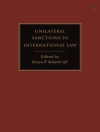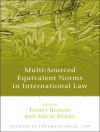This short monograph examines the tense relationship between central bank independence and democratic legitimation, which has changed as the European Central Bank (ECB) has been entrusted with new tasks and faced unprecedented challenges. The financial and sovereign debt crisis, in particular, has affected the ECB’s position within the Economic and Monetary Union without substantial changes in the Union’s legal framework. However, the evolution of an institution primarily obligated to maintain price stability into an actor involved in sustaining financial stability, performing banking supervision and supporting economic policy raises the question of whether the high level of autonomy granted to the ECB is justified with regard to the principle of democracy that demands adequate accountability and control.
This book identifies requirements for the democratic legitimation of central bank action in relation to specific tasks. Further, it analyses other scales of independence encountered in EU law in order to allow readers to gain a better conceptual understanding of central bank independence.
Innehållsförteckning
Introduction.- Central Bank Independence and Democracy.- Dimensions of Independence in the Various Tasks of the ECB.- Independence as a Structural Characteristic of European Union Law.- Democratic Legitimation and Control of Central Bank Action.- Conclusion.
Om författaren
Dr. Cornelia Manger-Nestler, LL.M. (Eur. Int.), is full professor of German and International Economic and Business Law at the Faculty of Business Administration and Industrial Engineering at Leipzig University of Applied Sciences (HTWK Leipzig).
Markus Gentzsch was research assistant at the chair of German and International Economic and Business Law at the Faculty of Business Administration and Industrial Engineering at Leipzig University of Applied Sciences (HTWK Leipzig) and is now desk officer at the Federal Ministry of Finance.












